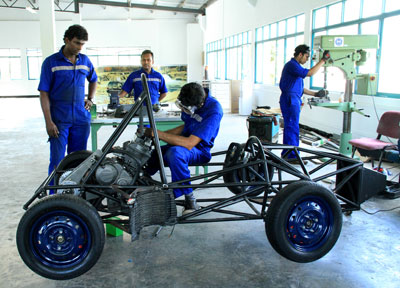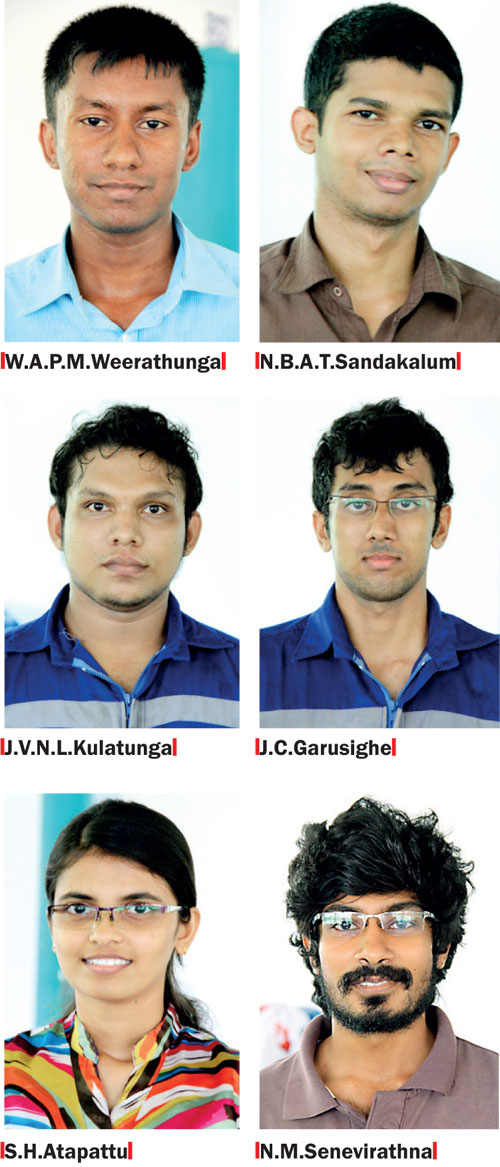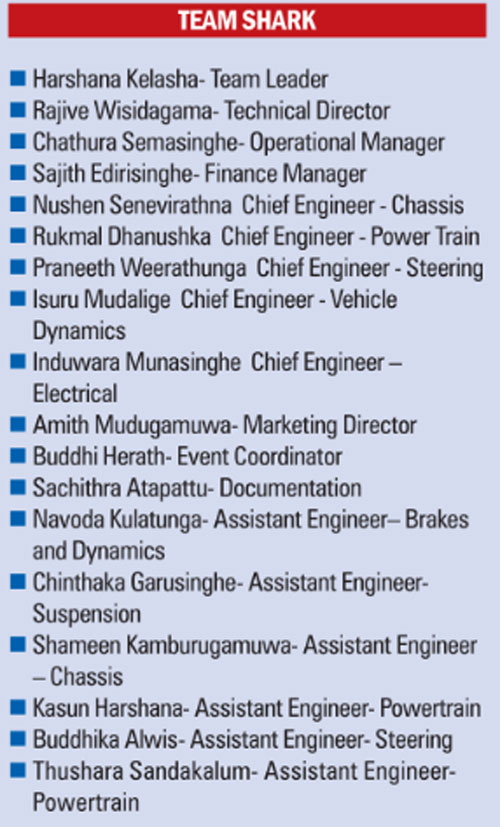Staying on track
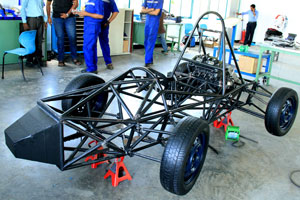
Pix Indika Handuwala
When a team from the University of Moratuwa embarked on a mission to build a racing car-from scratch-they didn’t exactly know what they were getting into. Almost two years and two batches later Team Shark is well on their way to debuting the first formula student racing car built by a group of university students in Sri Lanka.
This team of mechanical engineering students has taken on the challenge of building a racing car for the Formula Student Competition 2016, organized by the IMechE (Institution of Mechanical Engineers) in the United Kingdom. The competition is in July and the team says they’re almost at the finish line. Now the most pressing task is choosing who will drive the car on the Silverstone track: for a bunch of numbers driven creators this is hardly the most exciting part of the contest.
The competition is designed for engineering students, challenging them to design and build a single-seat racing car in order to compete in both static and dynamic events which demonstrate their understanding and test the performance of the vehicle. This is the first time a Sri Lankan team is taking part-moreover, Team Shark are also the first novice team to attempt to translate design into reality. “We were told that first timers usually only take part in the static event,” says Harshana Kelasha, team leader. “They were pretty surprised to learn that we were actually building the car as well.”
A year ago they wouldn’t have been able to tell you exactly where the project was going. Kelasha joined the project with (at the time) his senior Rajive Wisidagama. Rajive, the more design oriented, sketched a basic design. They had to gain approval from their university and although the team was met with skepticism at first they eventually garnered support and with the financial assistance of alumni and lecturers began translating the car from paper to the work shop.
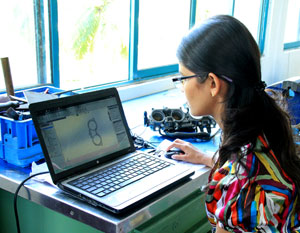
The team initially aimed to restrict their budget to Rs 1.8 million. They were approached by several groups, and chose DIMO Lanka as their partner. Team Shark is now generously sponsored by DIMO Lanka with a budget of Rs 14 million and the vehicle was primarily built at DIMO’s Siyambalapitiya workshop by the team, with tools (and advice when needed) provided by the DIMO team. Prior to that their workshop was at Advanced Engineering in Delkanda. “We’d like to thank Vijitha Bandara, Chief Operating Officer at DIMO’s TATA division alongside their team for their faith in us,” says Harshana. “It would’ve been very difficult to build the vehicle on our initial budget.”
The batch that took on the project has now graduated, so Harshana and his fellow batchmates-all in their final year-have taken on the task of completing and competing at the competition in 2016. They’ve also included a few junior batch members to ensure that the team next year won’t be working blind once more. At the moment, the team has delegated separate tasks among themselves. Nushen Senevirathne is Chief Engineer in charge of the vehicle’s chassis and the paddle shift system; it’s functional now but Nushen is a perfectionist-“it could have been better,” he says. “But we’re happy with how it turned out.”
Other members have taken on various aspects of building the vehicle (refer box), and although it has been challenging-can you imagine balancing a degree with building a vehicle from scratch?-they’re enthusiastic. The team hope to score particularly well in the cost event at the competition-their budget aims to balance cost with market feasibility, and lecturer in charge Sasiranga de Silva thinks this will prove to be their strength at the competition.
Who will drive the vehicle at the dynamic event of the competition, though? Team Shark have to pick five people-they’ll have a few professional racers train them over the next month, and will pick the best of the lot. At the moment they’re just focusing on getting the vehicle’s inner mechanisms working just right. The team is also grateful to those who stepped up to support them with the challenge along the way; they’re thankful in particular to a group of alumni from the university’s 2008 batch for driving initial fundraising support, and to their lecturers. “We just want people to know that it can be-and it was-done,” says Kelasha.
